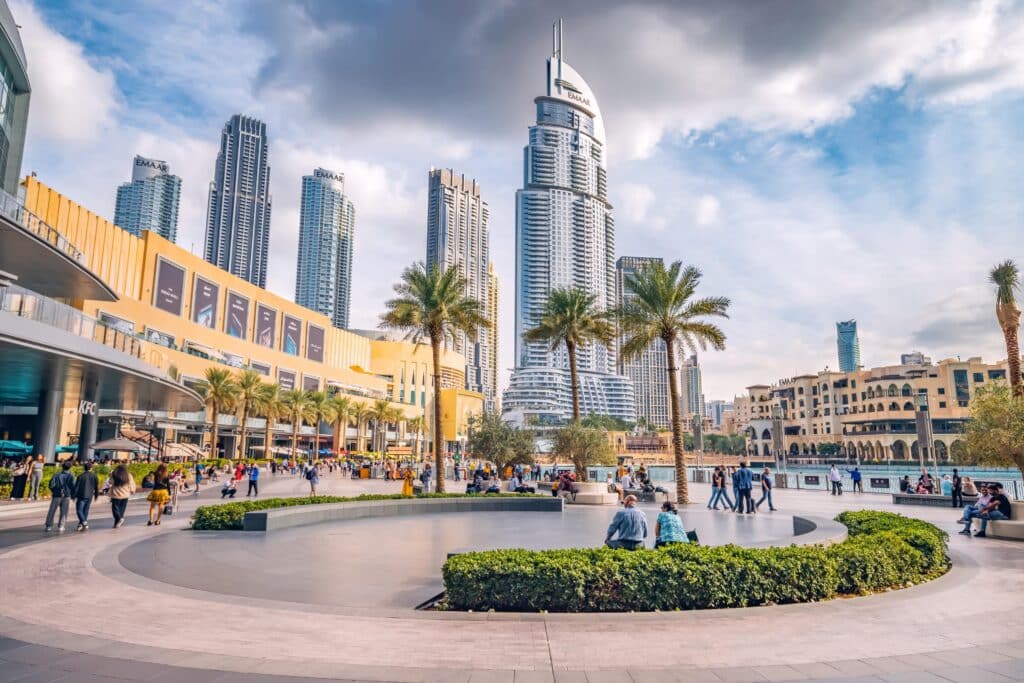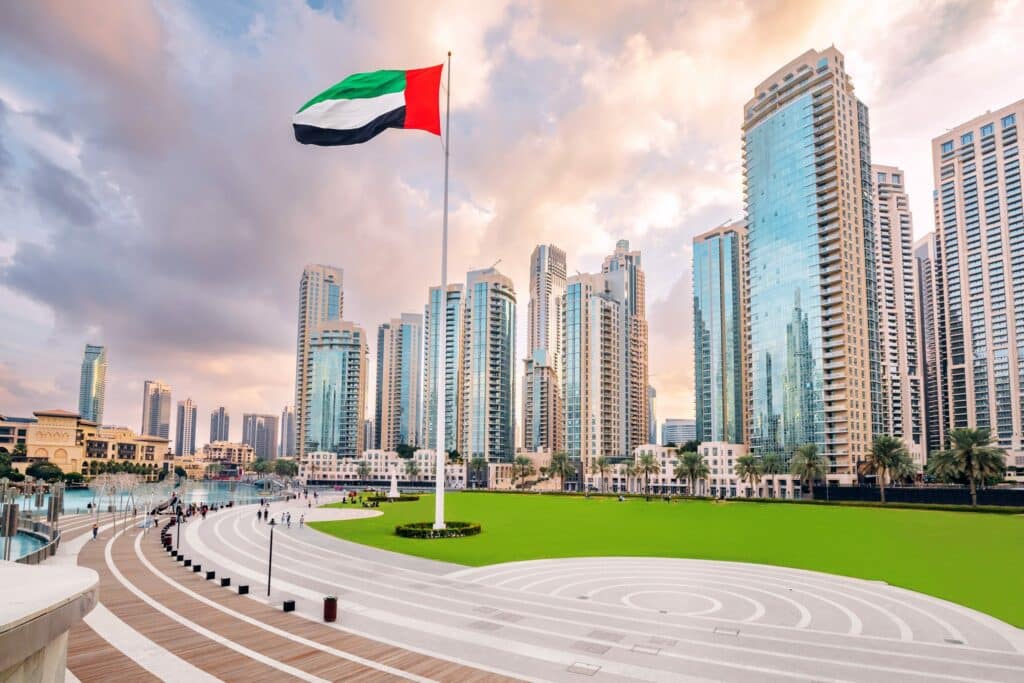Dubai Free Zone: Full Guide

What is a Free Zone?
Imagine a particular area within a country where different rules apply. That’s what a Free Zone is. Dubai is famous for them, but they exist all over the United Arab Emirates (UAE). These Free Zones were created to attract businesses from other countries.
Table of Contents
Think of it like this:
- Special Rules: Free Zones have their own rules and laws for businesses, different from the rest of the country. This includes special taxes and regulations about who can own the company.
- Why Free Zones Exist: They were created to attract more money and different types of businesses to the UAE and develop the country.
- Starting a Business: Starting a business in a Free Zone is more accessible than in other parts of the country. This makes them popular with people from different countries who want to start a business in Dubai.
- There are lots of them! The first free zone in Dubai was the Jebel Ali Free Zone (JAFZA), established in 1985.
How does it work? Is it only in Dubai?
As we mentioned, Free Zones are special areas with their own rules, designed to facilitate business start-ups and operations.

Think of the United Arab Emirates (UAE) as a big country with several smaller areas called Emirates. Each emirate has special zones called Free Zones where it’s easier to start and run a business. These Free Zones aren’t all in one place – they’re spread out across the entire country. This gives businesses lots of choices when deciding where to set up shop.
Here’s a quick look at what each emirate offers:
- Dubai: The most significant business center in the UAE, Dubai has many Free Zones for different types of businesses. It’s an excellent choice for companies that want to be in the middle of all the action.
- Abu Dhabi: The capital city has its own Free Zones, usually for specific industries. These zones are a good option for businesses that want to be close to the government and important decision-makers.
- Sharjah: This emirate also has several Free Zones for different industries. It’s known for being easy to get to,which is great for businesses that need to transport things in and out of the country. Free zones also tend to be more affordable.
When choosing a Free Zone, businesses need to think about a few things:
- Close to Customers: Where will the people buy their products or services?
- Other Businesses: Are there other businesses in the area that they can work with?
- Transportation: How easy is getting things to and from the Free Zone?
- Unique Benefits: What extraordinary things does each Free Zone offer to businesses?
- Attention to the visa prices: Each free zone has fees to give your employees a visa, and unless your employee has a golden visa, you will need to sponsor their visa.
Dubai has numerous Free Zones, each with its specializations and regulations. Some of the Major Free Zones in Dubai include:
- Jebel Ali Free Zone (JAFZA): One of the world’s largest and oldest free zones, focusing on logistics, trade, and industry.
- Dubai Airport Free Zone (DAFZA): Located near Dubai International Airport, ideal for logistics, aviation, and international trade companies.
- Dubai Multi Commodities Centre (DMCC): The world’s leading commodity hub, specializing in gold, diamonds, and other commodities.
- Dubai Internet City (DIC): A hub for technology and telecommunications companies.
- Dubai Media City (DMC): Home to media, advertising, and entertainment companies.
- Dubai International Financial Centre (DIFC): A leading financial center in the Middle East, Africa, and South Asia.
- Dubai Healthcare City (DHCC): A free zone dedicated to the healthcare sector, with hospitals, clinics, and pharmaceutical companies.
- Dubai Silicon Oasis (DSO): Focused on technology with semiconductor, microelectronics, and renewable energy companies.
Other notable free zones include:
- Dubai South (formerly Dubai World Central): A significant development focusing on aviation, logistics, and other industries.
- Meydan Free Zone: Home to companies from various sectors, including trade, services, and technology.
- International Free Zone Authority (IFZA): One of Dubai’s newest and fastest-growing free zones.
You can find a more comprehensive list and detailed information about each free zone on the following websites:
- Ministry of Economy of the United Arab Emirates: https://www.moec.gov.ae/en/free-zones
How can I benefit?
Think of Dubai’s Free Zones as special clubs for businesses. If you join, you get lots of perks:

- Your Own Boss: You can keep all the money you make and bring it back to your home country if you wish or reinvest it in your company.
- No Taxes: You don’t have to pay businesses’ usual taxes.
- Money Freedom: You can move your money around quickly without any problems.
- Work Anytime: You can run your business 24 hours a day, seven days a week.
- Office Choices: You can find the perfect office to buy or rent.
- Easy Start: It’s easy to start your business and get the correct licenses.
- Support System: You’ll be surrounded by businesses like yours, and the area will have the proper buildings and services to help you.
- No Extra Fees: You don’t have to pay extra fees when you bring things in or out of the country for your business.
- Shipping Savings: Shipping things in and out of the Free Zone is cheaper.
- Diverse Workforce: You can find employees from all over the world and easily hire the right people.
- Simple Immigration: Bringing your employees to Dubai is easy and stress-free.
It’s a world of opportunities.
What is the difference between a Free Zone and a Mainland?
Imagine Dubai has two main types of places for businesses: the “Mainland” and “Free Zones.”
Mainland
Think of this as the regular part of the city.
- Sharing is Caring: You must share your business with a local partner.
- Freedom to Roam: You can do business anywhere in the UAE.
- Office Space: You need at least 200 square feet of real office.
- Visas and Workers: The number of work visas you get depends on the size of your office.
- Lots of Rules: You need approval from different government offices to start your business, which might take longer.
Free Zones
These are like particular business areas with their own rules.
- It’s All Yours: You can own 100% of your business.
- Stay in Your Zone: You can only do business within the Free Zone.
- Office Optional: Some businesses don’t need an office at all.
- Limited Visas: The number of work visas is set by each Free Zone.
- More straightforward Rules: Each Free Zone has rules, but they’re usually more accessible than the Mainland.
Business Licenses in Free Zones
Free Zones have different types of licenses depending on what your business does:
- Industrial License: For making things like machines, chemicals, or food.
- Professional License: For services like consulting, accounting, or legal advice. Also, for creative jobs like designing or advertising.
- Freelance Permit: For individuals who want to work for themselves.
- E-commerce License: For selling things online.
- Tourism License: For hotels, tours, and travel agencies.
- Commercial License: For buying and selling things, importing, exporting, and storing goods.
- General Trading License: For buying and selling a wide variety of goods.
- Service License: For providing services like education or healthcare.
- Media License: For media production, broadcasting, or publishing companies.
- Financial Services License: This covers activities like banking, insurance, investment, and financial consulting. Different Free Zones may have variations on this license, such as specific licenses for asset management, fintech, or cryptocurrency businesses.
- Legal Consultancy License: This is for law firms and legal consultants operating within the Free Zone.
- Educational License: This is for schools, training centers, and educational institutions.
- Healthcare License: This covers hospitals, clinics, and other healthcare providers.
- While not precisely licenses, some Free Zones also have special permits or approvals for certain activities:
- Event Management Permit: This is required for companies organizing events within the Free Zone.
- Real Estate Brokerage Permit: Companies can act as real estate brokers within the Free Zone.

What are the requirements?
Imagine you want to start a business in one of Dubai’s Free Zones. To get everything set up, you need to go through a few steps:
- Initial Approval: This is like getting permission to join the Free Zone club. You’ll need to fill out an application form and provide some essential documents like copies of your passport and maybe your ID. Some Free Zones might ask for extra information like a business plan or financial reports.
- Registration and Licensing: Once approved, it’s time to make things official. The Free Zone will help you set up your business license like an operation permit. They’ll also help you with renting office space if you need it.
- Visa Processing: If you need to bring employees to Dubai, the Free Zone will help you get their visas sorted out.
The good news is that you don’t have to do all this alone!
HAYMAN-WOODWARD is a company that specializes in helping businesses get set up in Dubai Free Zones. They’ll handle everything for you, from filling out forms to dealing with the Free Zone authorities. This means you can focus on your business while they handle the paperwork.
Remember: Each Free Zone has slightly different rules, but HAYMAN-WOODWARD knows all the ins and outs. They’ll make sure your business gets set up smoothly and quickly. So, if you’re considering starting a business in Dubai, don’t hesitate to SCHEDULE A CONSULTATION.

